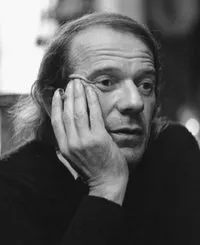
Gilles Deleuze: Rhizomatic Thought
Introduction
Gilles Deleuze, a key figure in 20th-century French philosophy, is known for his innovative concepts and his collaboration with Félix Guattari. Deleuze's work spans various fields, including metaphysics, epistemology, and political philosophy, and is characterized by its complexity and originality.
Life and Historical Context
Gilles Deleuze was born in 1925 in Paris, France. He studied philosophy at the Sorbonne, where he was influenced by thinkers such as Jean-Paul Sartre and Henri Bergson. Deleuze's career was marked by his unique approach to philosophy, which often challenged traditional boundaries and explored new ways of thinking. His collaboration with psychoanalyst Félix Guattari resulted in some of his most influential works.
Key Ideas and Philosophical Contributions
Deleuze's philosophy is known for its innovative concepts and its departure from traditional philosophical thought.
Rhizome: Deleuze and Guattari introduced the concept of the rhizome to describe a non-hierarchical, interconnected form of knowledge and existence. Unlike a tree, which has a single trunk and branches, a rhizome spreads out in all directions, reflecting the complexity and multiplicity of reality.
Becoming: Deleuze emphasized the idea of becoming rather than being, focusing on processes of change and transformation rather than static states of existence.
Difference and Repetition: In his work Difference and Repetition, Deleuze explores the nature of difference and its role in the production of identity and reality, challenging traditional notions of sameness and identity.
Assemblage: Deleuze and Guattari developed the concept of assemblage to describe complex systems composed of heterogeneous elements. Assemblages are dynamic and constantly changing, reflecting the fluid nature of reality.
Body without Organs: This concept, derived from the work of Antonin Artaud, refers to a state of existence free from hierarchical structures and fixed identities. It represents a form of pure potentiality and creative freedom.
Influence and Legacy
Gilles Deleuze's work has had a profound impact on various fields, including philosophy, literature, cultural studies, and political theory. His ideas have influenced a wide range of thinkers, including Judith Butler, Manuel DeLanda, and Rosi Braidotti. Deleuze's emphasis on multiplicity, becoming, and non-hierarchical structures continues to inspire contemporary philosophical and theoretical debates.
Notable Works
Deleuze's writings, often in collaboration with Guattari, offer a comprehensive exploration of his theories and their applications:
Anti-Oedipus: Co-authored with Félix Guattari, this work critiques traditional psychoanalysis and introduces the concept of schizoanalysis.
A Thousand Plateaus: Also co-authored with Guattari, this book expands on the concept of the rhizome and explores various aspects of social and political theory.
Difference and Repetition: Deleuze's exploration of difference and its role in the production of reality and identity.
The Logic of Sense: Analyzes the relationship between language, meaning, and reality.
What Is Philosophy?: Co-authored with Guattari, this work examines the nature and role of philosophy in contemporary society.
Conclusion
Gilles Deleuze's innovative concepts and radical approach to philosophy continue to challenge and inspire scholars across various disciplines. His work encourages a rethinking of traditional philosophical boundaries and opens up new possibilities for understanding the complexity of reality. By embracing multiplicity, becoming, and non-hierarchical structures, Deleuze's philosophy invites us to explore the dynamic and interconnected nature of existence.
Further Reading and External Links
- Deleuze, Gilles, and Félix Guattari. Anti-Oedipus. Archive.org
- Deleuze, Gilles, and Félix Guattari. A Thousand Plateaus. Archive.org
- Deleuze, Gilles. Difference and Repetition. Archive.org
- Deleuze, Gilles. The Logic of Sense. Archive.org
- Deleuze, Gilles, and Félix Guattari. What Is Philosophy?. Archive.org
- Stanford Encyclopedia of Philosophy: Gilles Deleuze
- Internet Encyclopedia of Philosophy: Gilles Deleuze
- Encyclopedia Britannica: Gilles Deleuze
This article aims to provide a comprehensive overview of Gilles Deleuze's philosophy, encouraging further exploration and understanding of his profound contributions to human thought.